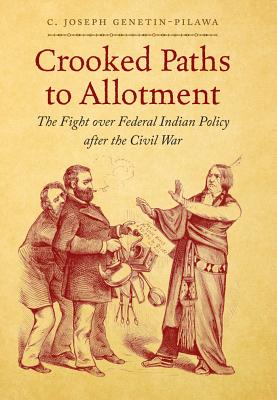“[T[hat Ackerman’s book so clearly betrays its own longing for the Civil Rights Act to be locked in forever—and that it does so in the spotlight, and at that untouchable law school, and at the height of Ackerman’s own untouchable career—makes that book a profound political act, no matter how idiosyncratic its alchemical thesis may be. American citizens are weirdly and dangerously complacent about our civil rights laws; so is the American legal academy. We think that laws like the Civil Rights Act could never disappear, precisely because they did change America so utterly. But they could, and Shelby County shows us that they may. At this moment, then, we need accounts of the Civil Rights Act as something more than the historical artifact that Risen and Putnam can give us. We need accounts that cast it as, if not part of our Constitution, then part of what Jack Balkin has called our “constitutional redemption,” our ongoing collective pursuit of a more perfect union. Bruce Ackerman, in fashioning a philosophy that would make it so, has not, himself, made it so. But he ought to move us to want to make it so ourselves.”
 New Books in Law talks with Ian Haney Lopez about his new book, Dog Whistle Politics: How Coded Racial Appeals Have Reinvented Racism & Wrecked the Middle Class (Oxford University Press).
New Books in Law talks with Ian Haney Lopez about his new book, Dog Whistle Politics: How Coded Racial Appeals Have Reinvented Racism & Wrecked the Middle Class (Oxford University Press).
New Books in History interviews Lisa Gitelman about her new work, Paper Knowledge: Toward a Media History of Documents (Duke University Press). Given that I’m currently working in the archives on a research trip, the interview’s tag line, "One doesn’t so much read a death certificate, it would seem, as perform calisthenics on one…” caught my attention. From the interview abstract:
"Though all of these cases are carefully rooted within a US context, the insights gleaned from them potentially apply to a much wider and trans-local conversation about the documentary media of writers and readers. It is a history of documenting as an epistemic practice and documents as instruments, and that history is consistently and productively entangled with concerns about reproduction, access, labor, and the emergence of a bureaucratic self.”
The London Review of Books has a piece, “On Cruelty” by Judith Bulter reviewing The Death Penalty: Vol. I by Jacques Derrida and translated by Peggy Kamuf (University of Chicago Press).
 H-Net adds a review on “New Directions in GAPE Indian Policy Studies” that examines four books: Cathleen Cahill’s Federal Fathers and Mothers: A Social History of the United States Indian Service, 1869-1933 (UNC Press); C. Joseph Genetin-Pilawa’s Crooked Paths to Allotment: The Fight over Federal Policy after the Civil War (UNC Press); Rose Stremlau’s Sustaining the Cherokee Family: Kinship and the Allotment of an Indigenous Nation (UNC Press); and Nicole Tonkovich’s The Allotment Plot: Alice C. Fletcher, E. Jane Gay, and Nez Perce Survivance (University of Nebraska Press). Cahill’s Federal Fathers and Mothers was on my reading list for exams, and I’d recommend it to anyone thinking and writing about mid- and local-level bureaucrats. From the review:
H-Net adds a review on “New Directions in GAPE Indian Policy Studies” that examines four books: Cathleen Cahill’s Federal Fathers and Mothers: A Social History of the United States Indian Service, 1869-1933 (UNC Press); C. Joseph Genetin-Pilawa’s Crooked Paths to Allotment: The Fight over Federal Policy after the Civil War (UNC Press); Rose Stremlau’s Sustaining the Cherokee Family: Kinship and the Allotment of an Indigenous Nation (UNC Press); and Nicole Tonkovich’s The Allotment Plot: Alice C. Fletcher, E. Jane Gay, and Nez Perce Survivance (University of Nebraska Press). Cahill’s Federal Fathers and Mothers was on my reading list for exams, and I’d recommend it to anyone thinking and writing about mid- and local-level bureaucrats. From the review: “Each of these books demonstrates that both Indian Affairs and Native peoples, often sidelined in GAPE [Guilded Age and Progressive Era] scholarship, are important for a complete understanding of the era. The stories of Indigenous peoples reflect numerous themes explored in broader studies of the period: the treatment of racial minorities, shifting gender roles, the formation of the national state, and colonialism. Within the more narrow range of policy history, these four monographs reveal Indian policy as more complex and nuanced than the traditional historiography has indicated, especially in how it was carried out “on the ground” by workers in the Indian Service. They emphasize the policy’s particular human costs and explore the ways in which these policies were gendered. Native strategies of adaptation and survival analyzed in these works appear as creative and multifaceted, highlighting the reasons for the policy’s ultimate failure. Despite the concerted efforts of a massive federal bureaucracy, American Indian nations remain within the United States."